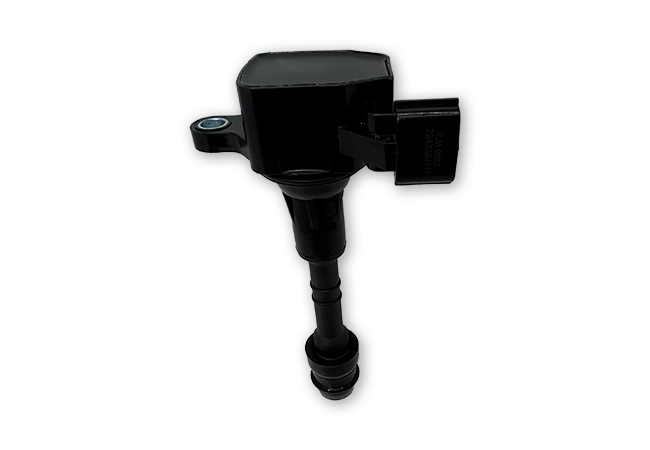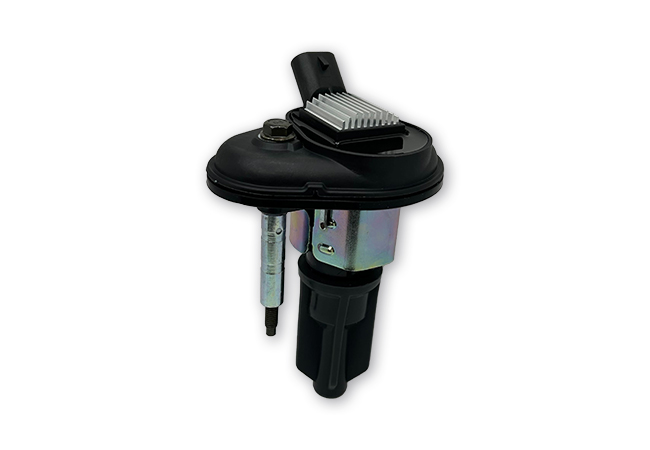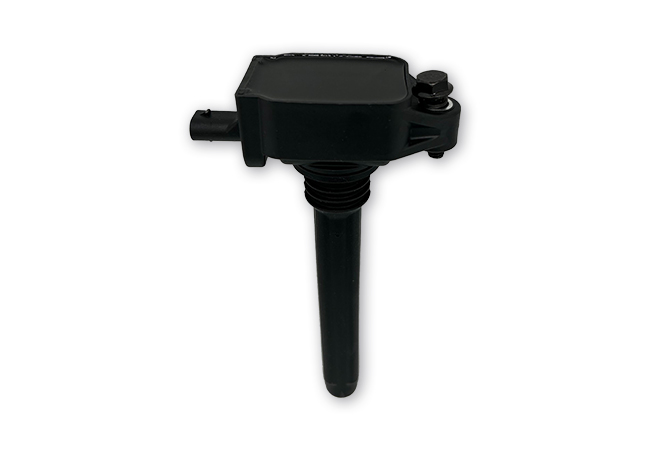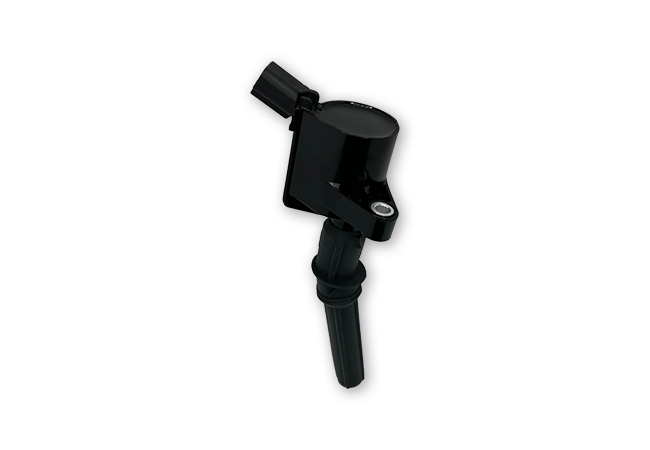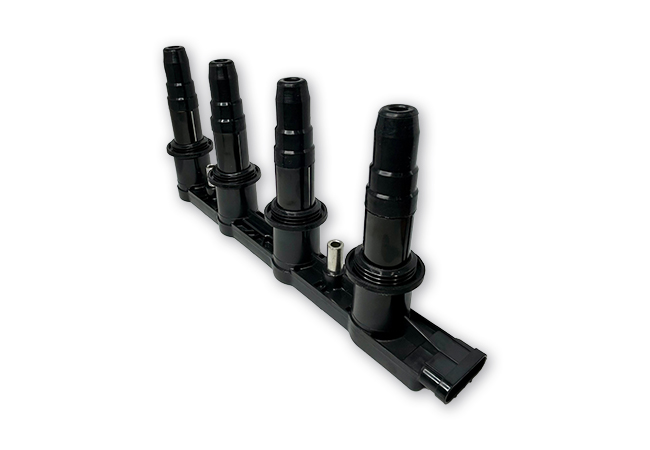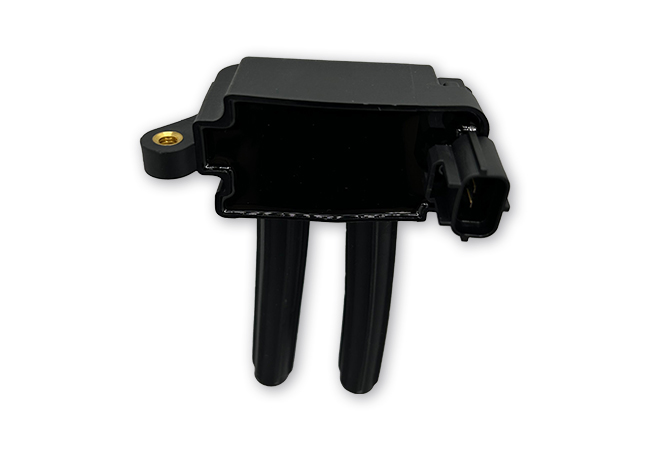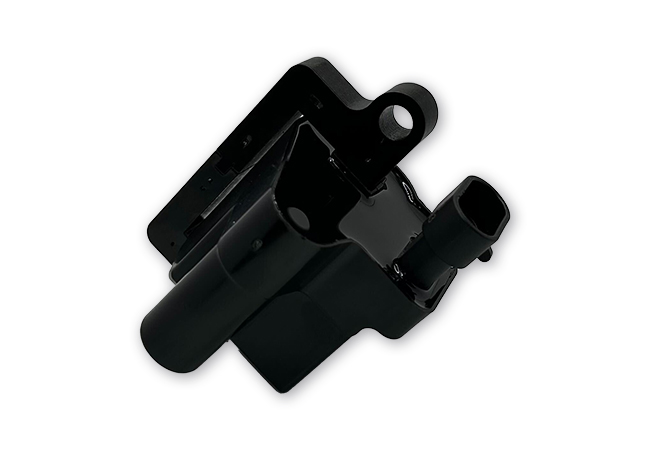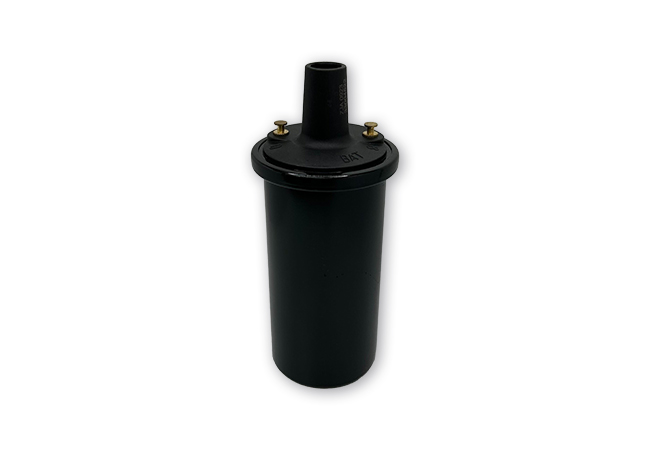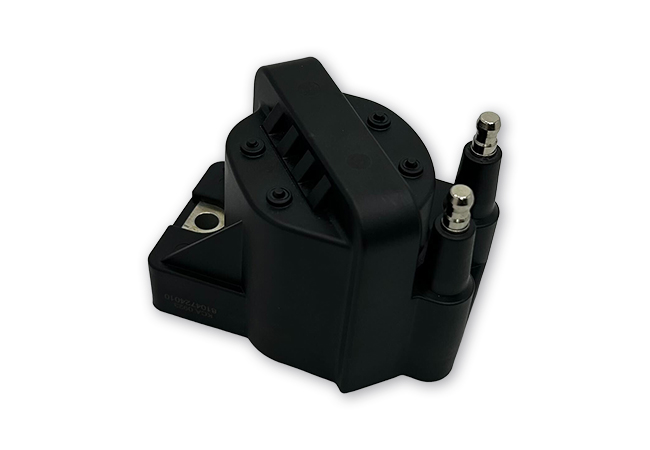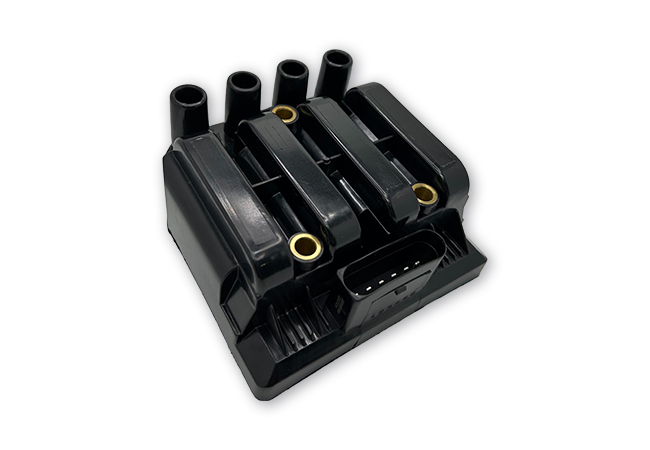ABOUT THE PRODUCT
An ignition coil is a crucial component in the ignition system of internal combustion engines, primarily found in automobiles. Its primary function is to convert low-voltage electricity from the battery into high-voltage electricity needed to create the spark in the engine’s combustion chamber. This spark ignites the air-fuel mixture, enabling the engine to start and run. Ignition coils are critical for engine performance, as they ensure reliable ignition timing and spark intensity. A faulty ignition coil can lead to engine misfires, poor fuel economy, and even engine stalling.
- Direct Fit Applications Designed and Manufactured to Meet or Exceed OE specifications
- Manufactured using premium high-quality coated copper in the primary and secondary windings
- Thermal shock cycling, salt spray, and vibration testing to ensure durability and performance in demanding conditions
- High-temperature boots preventing high-voltage leaks
- 3 Year / 36,000 Mile Warranty on all Holstein Parts Ignition Coils
Product Details
What does the Ignition Coil do?
The ignition coil is a crucial component in the ignition system of internal combustion engines. Its primary function is to transform the low voltage from the battery into the high voltage needed to create a spark in the spark plugs. This spark is essential for igniting the air-fuel mixture within the combustion chamber, initiating the engine’s power stroke.
Where is the Ignition Coil located?
The location of the ignition coil varies depending on the specific design of the vehicle’s engine and ignition system. However, in most traditional gasoline-powered vehicles, the ignition coil is typically located near the engine block or cylinder head. It is often mounted on or near the engine’s intake manifold, valve cover, or firewall.
In vehicles equipped with distributor-based ignition systems, the ignition coil is commonly mounted on or near the distributor. In contrast, in vehicles with distributorless ignition systems (DIS) or coil-on-plug (COP) systems, individual ignition coils are usually positioned directly above each spark plug or within close proximity to them.
Will a malfunctioning Ignition Coil cause a check engine light?
Yes, a malfunctioning ignition coil can potentially trigger the check engine light (CEL) in a vehicle. The ignition coil plays a critical role in the ignition system, and if it fails or operates inefficiently, it can lead to various issues that affect engine performance and emissions.
When an ignition coil malfunctions, it can result in misfires, which occur when the air-fuel mixture in one or more cylinders fails to ignite properly. Misfires can lead to a variety of symptoms, including rough idling, hesitation, reduced engine power, and increased emissions.
What are the common causes of failure?
- Overheating: Excessive heat buildup, often due to prolonged operation or inadequate cooling, can lead to the degradation of insulation materials within the ignition coil. This can result in short circuits or electrical breakdown, ultimately causing the coil to fail.
- Age and Wear: Ignition coils, like many automotive components, can deteriorate over time due to normal wear and tear. The continuous cycling of heating and cooling during engine operation can cause internal components to weaken or degrade, eventually leading to failure.
- Moisture and Corrosion: Exposure to moisture, condensation, or corrosive substances can accelerate the deterioration of ignition coils. Corrosion of electrical connections or internal components can impair the coil’s ability to generate and deliver high voltage, resulting in reduced performance or failure.
- Vibration and Mechanical Stress: Vibrations and mechanical stress, particularly in vehicles operating under harsh conditions or off-road environments, can contribute to the physical degradation of ignition coils. This can lead to cracks, fractures, or other structural damage that compromises the coil’s functionality.
- Electrical Overload: Electrical overload, often caused by voltage spikes, surges, or incorrect wiring, can damage the internal circuitry of ignition coils. This can result in short circuits, overheating, or insulation breakdown, leading to coil failure.
- Contaminants in the Fuel or Air: Contaminants present in the fuel or air intake system, such as dirt, debris, or oil, can accumulate on the surface of ignition coils. Over time, these contaminants can interfere with electrical connections or thermal dissipation, causing performance issues or failure.
How to determine if a Ignition Coil is failing?
To confirm whether an ignition coil is failing, diagnostic tests can be performed using specialized tools, such as an ignition coil tester or a multimeter. These tests typically involve measuring the resistance of the coil’s primary and secondary windings, as well as checking for continuity and insulation integrity. Additionally, conducting a comprehensive engine diagnostic scan can help identify specific trouble codes related to ignition system faults, providing further insight into the health of the ignition coil.
What makes Holstein Parts Ignition Coils the Best?
- Direct Fit Applications Designed and Manufactured to Meet or Exceed OE specifications
- Manufactured using premium high-quality coated copper in the primary and secondary windings
- Thermal shock cycling, salt spray, and vibration testing to ensure durability and performance in demanding conditions
- High-temperature boots preventing high-voltage leaks
- 3 Year / 36,000 Mile Warranty on all Holstein Parts Ignition Coils

